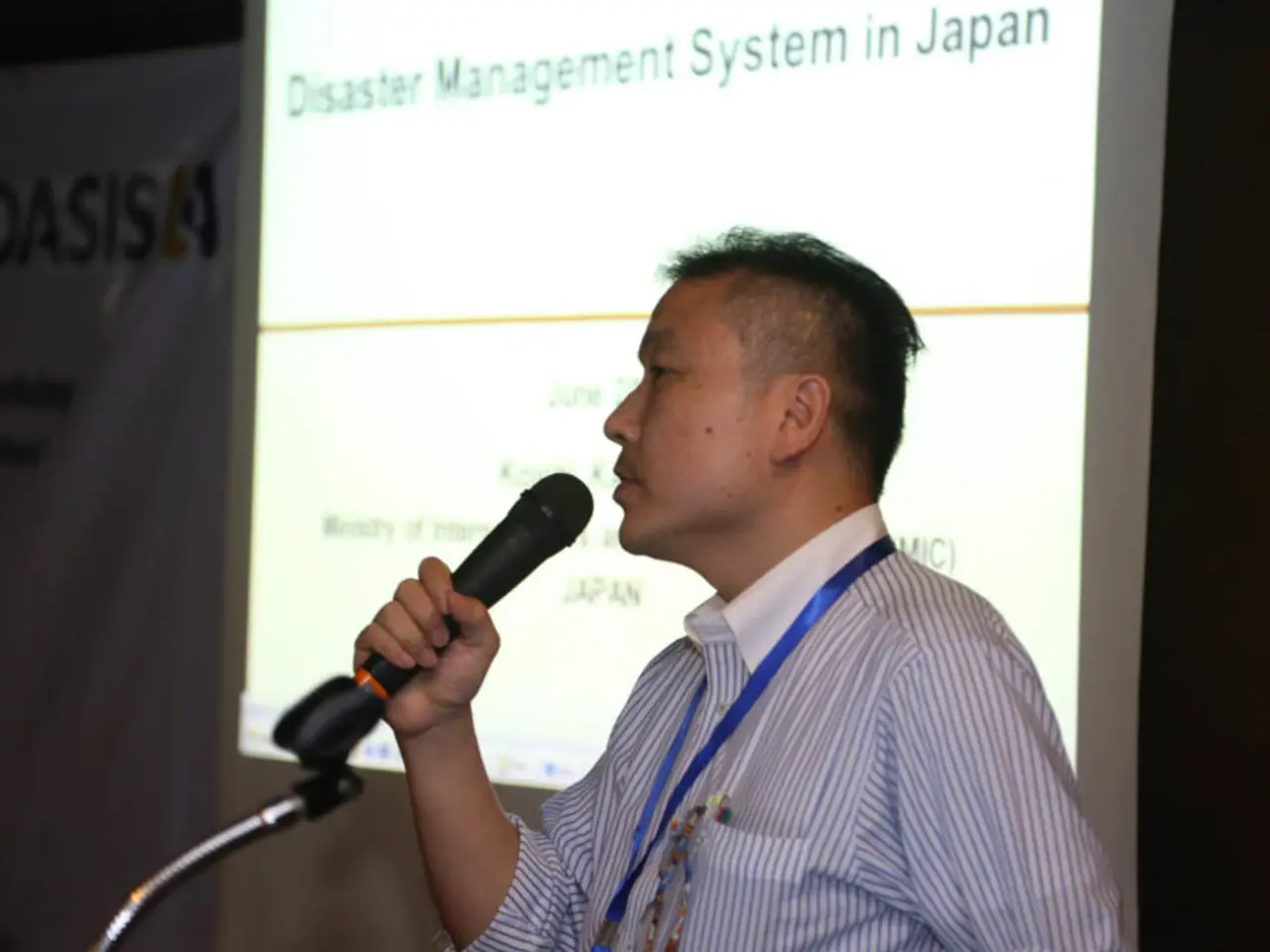Criticism leveled at Fisheries Agency for neglecting storm evacuations
The Fisheries Agency in Taiwan has come under scrutiny for its handling of typhoon evacuation procedures, particularly for migrant fishermen. The Control Yuan, the Taiwanese government's watchdog agency, has censured the Fisheries Agency for ineffective assistance in evacuating crew members from fishing boats during typhoons between July and October 2020.
The investigation, led by Control Yuan members Chi Hui-jung and Wang Yu-ling, found that many fishermen remained aboard their vessels during typhoons Gaemi, Krathon, and Kong-rey, despite local government orders. This was notably the case during Typhoon Krathon in October 2020, when some migrant fishermen were forced to stay aboard their vessels to "guard" the ships.
The Control Yuan's statement accused the Fisheries Agency of major negligence in its administration, as it allegedly shirked its responsibility by shifting the burden onto local authorities. The agency was criticised for being passive in overseeing mandatory evacuations, limiting its role to compiling evacuation information provided by local governments.
The current evacuation standards for fishing crew members during typhoons, which were originally discussed and set by the Fisheries Agency in 2018, have not been updated or sufficiently maintained despite increasingly severe weather conditions. This has led to criticism of the agency's indifferent attitude towards fishermen's safety.
Experts recommend that local governments improve port stability and develop science-based, transparent rules on when crew may remain on vessels during typhoons. New Taipei City, which has made notable progress in this regard, could serve as a reference for other jurisdictions.
In response to these criticisms, the Fisheries Agency has committed to "humble introspection" and consulting with central and local agencies to ensure local governments take appropriate actions during typhoons. The agency plans to continue urging local governments to review and adjust evacuation standards tailored to each fishing port’s specific conditions.
The Control Yuan members urge the agency to redouble efforts to support local governments in developing tailored evacuation standards for each fishing port. An agency ombudswoman suggests that local governments should improve port stability and formulate rules on when crew members can remain on vessels to guard them.
It is worth noting that fifteen out of nineteen cities and counties with fishing ports issued orders for vessels under 100 tonnes to fully evacuate their crews to safety. However, the crew members required to remain on board were mostly migrant workers, according to reports.
The Disaster Prevention and Protection Act, the Taiwanese law governing disaster prevention and protection, states that such actions contravened the Act and are punishable by a fine ranging from NT$50,000 to NT$250,000. The Control Yuan's investigation and subsequent censure aim to ensure the safety of all fishermen, regardless of their nationality, during typhoons.
- The Control Yuan's statement accused the Fisheries Agency of major negligence in its administration, as it allegedly shirked its responsibility by shifting the burden onto local authorities, even in matters related to environmental science, such as weather forecasting and adhering to climate-change data to decide appropriate evacuation measures during typhoons.
- Despite increasing severe weather conditions, the current evacuation standards for fishing crew members during typhoons have not been updated or sufficiently maintained by the Fisheries Agency, leading to criticism of the agency's indifferent attitude towards general news and crime-and-justice issues, such as the safety of migrant fishermen working under its jurisdiction.
- Experts suggest that local governments can improve port stability and develop science-based, transparent rules on when crew may remain on vessels during typhoons. These rules are essential aspects of both environmental-science and general-news, with implications for crime-and-justice, since the safety of all fishermen, regardless of their nationality, must be ensured, as stated by the Disaster Prevention and Protection Act.








